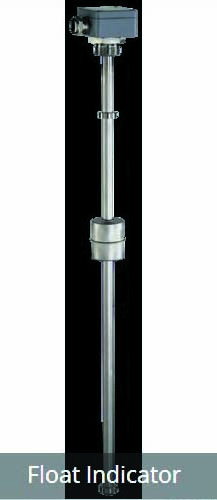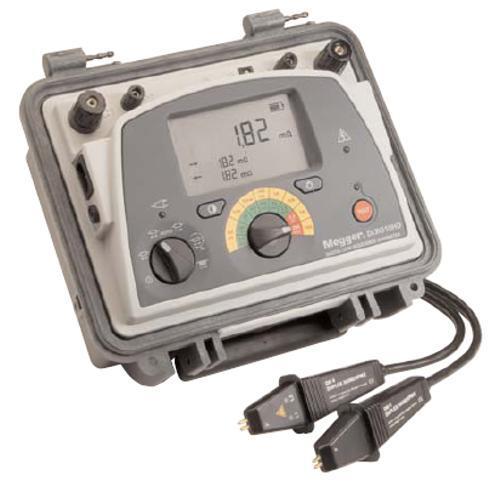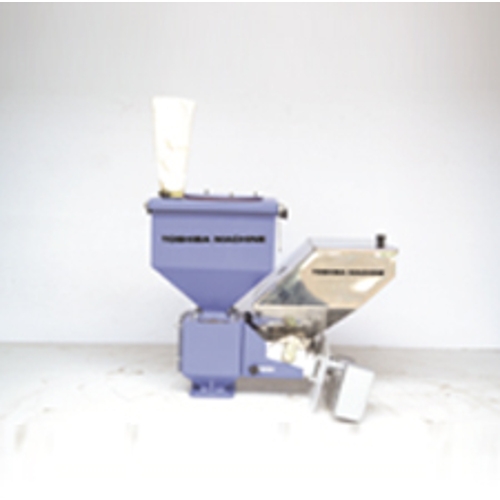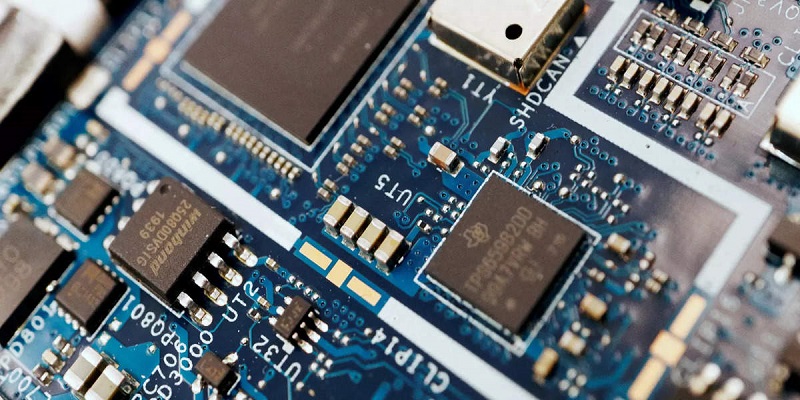Schedule a Call Back
Re-tooling China
 Technical Articles
Technical Articles- Mar 12,14
 Once, China led the world for innovation. Then came centuries of decline. But now, the country is making up for lost time by leap-frogging much of the 20th century, adopting the latest technology and techniques, and creating engineers and companies to compete with the best in the world.
Once, China led the world for innovation. Then came centuries of decline. But now, the country is making up for lost time by leap-frogging much of the 20th century, adopting the latest technology and techniques, and creating engineers and companies to compete with the best in the world.
Turns out China invented almost everything at least one thousand years before the west 'invented' it: Paper and paper money, for example; gunpowder, firearms and fireworks; blast furnaces, seed drills, plows and suspension bridges. Even pasta (or so the story goes), like many other things, came originally from the Orient.
What the Chinese didn't invent, however, was mass production. At least, not mass, industrial production, of the type that underpinned western mass consumption, beginning in the early 20th century; a 'killer app' of western power, in the words of historian, Niall Fergusson, and one that helped reinforce decades of global, economic dominance.
But, as its economy grows, China is embracing contemporary, best-practice manufacturing techniques, tried-and-tested over several decades by companies in the US and Europe. And it's not just big Chinese companies. Managers at small, family-owned businesses are keen to emulate western counterparts, perhaps because none of them are under any illusions about competing globally in the long-term, when advantageous wage differentials are finally a thing of the past.
 In the ancient city of Suzhou - a UNESCO World Heritage Site, where walled gardens up to a thousand years old have been drawing tourists for almost as long, Suzhou Eric Company, a small firm with big ambitions is already several steps ahead of its competitors.
In the ancient city of Suzhou - a UNESCO World Heritage Site, where walled gardens up to a thousand years old have been drawing tourists for almost as long, Suzhou Eric Company, a small firm with big ambitions is already several steps ahead of its competitors.
General manager and founder Mr Yu named the company for his son, who's currently 13-years-old and during the school recess, spends his days helping to set-up and run the company's 16 Haas CNC machine tools.
The Eric factory is all order and efficiency. If you couldn't see the faces of the machine operators, you could be mistaken for thinking you were in Germany or Indiana. That is, if it were not for the stultifying heat and humidity.
Although only founded in 2009, Eric Company has grown fast and now employs 110 people, including 15 engineers and, significantly, 8 QA engineers. Most of the latter work in air-conditioned measurement rooms equipped with the latest CMMs and probes. In the west, it's common to hear the complaint that Chinese manufacturing companies can deliver low cost parts, but not low cost and high quality. Clearly, that's not the case at Eric. During its first year of trading, the company generated around CN?1million ($160,000). The forecast for 2013 is CN?40million ($6.5million)! Yu's ambition is for the company to be a one-stop supplier for his mostly western customers: Ingersoll Rand, Singapore Aerospace Manufacturing, GSI Lasers and Camtek Intelligent Imaging, to name just a few.
Currently, production is split between aerospace, medical and precision equipment. Yu feels the big opportunities for growth are in aerospace and medical sectors, as well as serving foreign companies based in China; those that are looking for the high standards and prompt delivery they are used to. Despite his obvious affinity for precision engineering, Yu thinks of himself as a salesman, rather than an engineer. His family's business was manufacturing, but he only ever concerned himself with its commercial side. At a push, he agrees to call himself a self-taught engineer. His real talent, though, is employing the right people and giving them the opportunity to do what they do best. He's evidently a very capable manager.
 "I owned some shares in my father's business," he says, "which I eventually used to start Eric. My first Haas machine was also installed at my father's company - which itself was founded in 1999. If I needed help or guidance, there were plenty of experts on-hand." Increasingly, China-based OEMs are sourcing parts from overseas. I ask Yu why he thinks this is the case and he tells me it's because foreign firms typically employ better technology and are better organised than those closer to home. He also says foreign firms' QC procedures are better than most companies in China, meaning the customer can rely on correct parts being delivered. However, Mr Yu is staking his company's future on the ability of Chinese workers to achieve the higher standards demanded by western OEMs.
"I owned some shares in my father's business," he says, "which I eventually used to start Eric. My first Haas machine was also installed at my father's company - which itself was founded in 1999. If I needed help or guidance, there were plenty of experts on-hand." Increasingly, China-based OEMs are sourcing parts from overseas. I ask Yu why he thinks this is the case and he tells me it's because foreign firms typically employ better technology and are better organised than those closer to home. He also says foreign firms' QC procedures are better than most companies in China, meaning the customer can rely on correct parts being delivered. However, Mr Yu is staking his company's future on the ability of Chinese workers to achieve the higher standards demanded by western OEMs.
Of course, part of the formula is giving Chinese workers access to the same technology and training enjoyed elsewhere in the world. In 2009, he invested in a Haas VF-2 vertical machining centre, which was recommended by an existing user - a nearby friend. The machine was used to make precision equipment for PCB inspection, for CAMTEK. "The customer had limited in-house machining capacity at that time, so they agreed to give us the opportunity to do some work for them."
In all, Eric Company produced 200 different parts for CAMTEK, over a 2-month period. "Our first machine operator - the man who ran that VF-2, is now our general manager for operations." Clearly, Mr Yu was impressed with the Haas machine; every year thereafter the company bought more.
"Each time we needed a machine, Hu at the Suzhou Haas Factory Outlet came to see me to find out exactly what we needed and what we intended to use it for. It was, and still is a very collaborative process. Our relationship with the HFO is a more like a friendship, which is very important to us."
"The Haas machines are very accurate. Some of our customers need those high levels of accuracy, others don't. The challenge for us hasn't been achieving the accuracy - the Haas machines have proved to be very capable, it has in fact been the quality checking we've had to invest in. We use a First Article Inspection process, and each machine tool operator has access to all the part and job information on a PC located at his work station."
Yu believes that Haas machines are particularly attractive to start-up machine shops, as they offer a lot of capability for a very competitive price. He also says that none of his Haas machines had a single, technical issue for their first three years of operation. "When we do have a problem, the service and support are very good indeed. If ever we have a technical issue, the service engineer will be here with the parts in 4-hours or less. This is precisely what the HFO promised when we first invested in Haas and they have been true to their word. The delivery is also very impressive. When we need a new machine, we get one immediately."
In short, we trust the Haas brand. They are very good machines and they are well-supported, especially compared to other machines that are available." Whether Yu considers himself an engineer or not, he is a question asker. He has a restless curiosity and a desire to learn from everyone and every opportunity. Ultimately, his goal is very simple, and one that every one of his managers appears to share: to satisfy Eric's customers. He wanted to work with Haas because "they share the same philosophy."
The 13-year old Eric Yu is there on the day of my visit, tending a Haas CNC Mini-Mill. His father says he doesn't have any expectations that his son may eventually join the company. Rather, he wants him to learn the value of hard work; instead of spending his school holidays wasting time, he insists Eric comes to the factory to work alongside the machine operators. "At least this way he will learn what it means to apply himself. And, should he decide to one day to make his career with the company, or in precision engineering, he will have this experience to draw on."
It's possible the young Eric Yu has little interest in China's industrial past. But, as the son of a successful manufacturing entrepreneur, he could, if he chooses to, play a significant part in the country's industrial future and the early decades of the Asian century. His generation is starting out with the best available tools and techniques. What they do with them will probably change the world as we know it. Chinese history tells us so.
Related Products

Float Indicator
Charun instruments offers float indicator, which is used for fluid level measurement in several industries.

Digital Low Resistance Ohm Meter
SM Systems offers 10 amp digital low resistance ohm meter,
which is used in various sectors for different kinds of measurement purposes.

Blending Units
Toshiba Machine (Chennai) Pvt Ltd
offers blending units.















